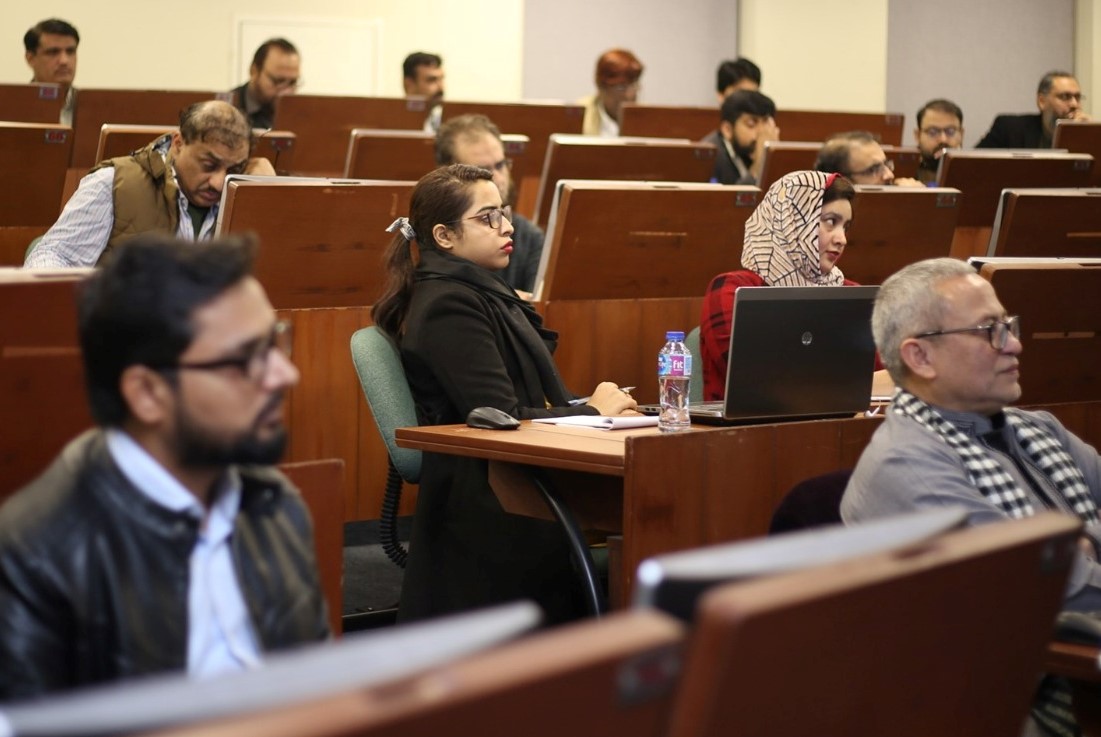How to Prepare for the Effective Presentation

By: Muniba Mahmood
A crucial time that comes in the life of almost every student is to prepare himself for the presentation. No matter either from which field of study, he belongs to, the one common thing that he must face during the career is to present the assignment or projects in front of the audience. For the very first time it looks quite difficult and heavy task, but once a student learns the techniques and basics, it’s become too easy for them. Presentation not only associated with an academic level but also when someone enters into professional life as well.
 Presentation requires both verbal and non-verbal skills to be learned. A researcher said that most communication is non-verbal. About 15% of the message is oral! If someone thinks how they present themselves doesn’t influence how people will respond to them, then you won’t help yourself in presentation situations. You can always attend presentation classes or seminars or look for a public speaking coach.
Presentation requires both verbal and non-verbal skills to be learned. A researcher said that most communication is non-verbal. About 15% of the message is oral! If someone thinks how they present themselves doesn’t influence how people will respond to them, then you won’t help yourself in presentation situations. You can always attend presentation classes or seminars or look for a public speaking coach.
Communicating something to the audience effectively is no doubt a huge task, but by learning the following steps, the result will surely be fruitful and effective.
Tips for Effective Presentation:
Tell a Captivating story:
It can be a personal story or someone else who the audience can learn from. Captivate your listeners in the first 60-90 seconds and make sure the story encapsulates the key point of the message.
Show a Gripping Photo:
Use photos instead of text, when possible. A picture is worth a thousand words. Using a visual aid can also help on emphasizing a point as more text is not more convencing.
State a Shocking Statistic or headline:
The statistic, bold claim or headline needs to be directly related to the main purpose of the presentation. the audience will listen and respond positively to the recommendations and next step.
Prepare ahead of time:
Make a list of everything that you need or need to know before giving your presentation. Set deadlines for each item and adhere to it.
Be prepared to answer questions during and at the end of your presentation:
Be prepared to elaborate or clarify on any point in your presentation and remember you are the guest speaker. Depending on the forum and the circumstances, you may be required to stop sporadically throughout your presentation for questions or they may be collected at the end. Make sure that when you are researching for the presentation, you research more than you actually cover in the sales presentation. This way you will be able to elaborate when called upon to do so.
Practice in front of a mirror:
Before the presentation, practice in front of a mirror so that you can see what mannerisms you use that you may want to eliminate from your sales or motivational
Prepare any props that you plan to use well ahead of time:
Test these to ensure that they are working correctly. You may also want to have a back-up in case of last-minute malfunctions. If possible, provide handouts to your audience so that they will have something to review at a later time.
Practice in front of small group of people that you trust:
They can give you other perspectives of how you look, sound and present yourself in general. This will also help you to adapt to having other people present, as well as to know what points may introduce the discussion.
Dress professionally on the day of the presentation:
Physical appearance contributes greatly to the confidence that your audience will feel in your words. Because of this, you should also maintain a straight posture. Exude confidence and your audience will accept your authority.
Avoid fillers in your presentation:
If you stumble over words, collect yourself silently before resuming. “Oh”s, “Um”s and “like”s will degrade your authority and you are likely to lose your audience.
Interact with your audience:
This enables you to check their interest in specific points and to give yourself a second to occasionally recompose yourself. People are also more likely to focus on a presentation that they are able to contribute to.
Breathe!
If you feel your pulse racing and your breathing becoming uncontrollable, you can relax your nerves by taking a deep breath, holding for 2-3 seconds and releasing it. Do this several times to slow your heart rate.
Smile at your audience and do not avert your eyes:
Staring at one person is intimidating and starting at the wall is evasive. If you flit your eyes over the audience in general, it will appear that you are maintaining eye contact with different people throughout the presentation and this will increase your authority. If there are several people in the audience that have a level of importance in the result of your presentation (i.e. a professor), you would do well to make eye contact with them at least once.
Blogger is a professional MBA Graduate and a passionate writer.




